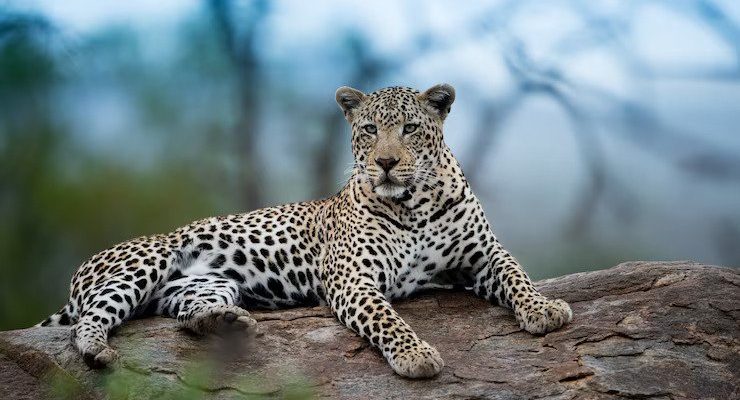
Rajkotupdates.news, a leading news platform in India, recently published an article highlighting the concerns and challenges surrounding the conservation of cheetahs. The article titled “Cheetah: Magnificent but Fragile – Experts List Concerns for Cheetahs” sheds light on the plight of this majestic cat species that is facing extinction due to a variety of threats.
The article provides insights from experts in the field who have been working tirelessly to ensure the survival and protection of cheetah populations. It discusses various factors contributing to their decline such as habitat loss, human-wildlife conflict, poaching, and climate change. The piece also examines ongoing initiatives aimed at safeguarding cheetah populations and restoring their natural habitats.
Cheetahs in danger
rajkotupdates.news: cheetah-magnificent-but-fragile-experts-list-concerns-for-cheetahs ,Cheetahs are one of the most magnificent and fascinating creatures on earth. They are known for their speed, agility, and gracefulness. Unfortunately, these beautiful animals are also very fragile and in danger of extinction. There are several factors that have contributed to the decline in cheetah populations over the years.
One of the main reasons why cheetahs are in danger is due to habitat loss. As human populations continue to expand into areas where cheetahs live, their natural habitats have been destroyed or fragmented. This means that there is less space for these animals to roam and hunt, which can lead to food shortages and other problems.
Another major threat facing cheetah populations is illegal hunting and poaching. Many people hunt cheetahs for their fur or simply because they see them as a threat to their livestock or crops. This has led to a sharp decline in cheetah populations across many parts of Africa and Asia.
Overall, it is clear that something needs to be done if we want to protect these amazing animals from disappearing forever. By addressing issues such as habitat loss, poaching, and human-wildlife conflict, we can help ensure that future generations will be able to enjoy the beauty and majesty of these incredible creatures for many years to come.
The magnificence of cheetahs
Cheetahs are truly magnificent creatures that have captured the hearts of many people. These majestic animals are known for their incredible speed, agility, and grace, which make them one of the most remarkable predators in the world. Cheetahs are also easily recognizable due to their distinctive spotted coat pattern, which is a unique feature among big cats.
Despite being such fascinating animals, cheetahs face numerous challenges in today’s world. Experts have expressed concerns over the declining population of cheetahs due to habitat loss, poaching, and human-wildlife conflict. In fact, according to recent estimates by conservation groups, there are only about 7,000 cheetahs left in the wild today.
To address these concerns and protect this magnificent species from extinction; various measures have been taken by governments and conservation organizations around the world. These include initiatives such as habitat restoration projects as well as anti-poaching programs that aim to reduce illegal hunting activities targeting cheetahs for their fur or other body parts. Additionally, efforts are being made to promote awareness about these animals so that people can appreciate their beauty while also understanding how important it is to protect them for future generations.
Concerns for cheetah populations:
One major concern for cheetah populations is habitat loss. As human populations and activities expand, the cheetah’s natural habitat is being encroached upon and destroyed. This leads to a decrease in prey availability, forcing the cheetahs to hunt livestock which often results in conflict with humans.
Another concern is genetic diversity. Cheetahs have very little genetic variation due to past population bottlenecks, making them vulnerable to diseases and other environmental stressors. Inbreeding can also result in birth defects and reduced reproductive success.
Poaching also poses a threat to cheetah populations as their skins are highly valued in some cultures for ceremonial purposes or as trophies. Conservation efforts such as anti-poaching patrols and raising awareness about the importance of preserving these magnificent animals’ habitats are crucial to ensure the survival of this endangered species.
Habitat loss due to human activities
Habitat loss due to human activities is one of the biggest threats faced by many endangered species around the world. As humans continue to expand their settlements and engage in resource-intensive activities like agriculture, logging, mining and urbanization, natural habitats are being destroyed at an alarming rate. This has a devastating impact on biodiversity as animals lose their homes and food sources.
The cheetah, a magnificent but fragile animal, is no exception. With only an estimated 7,000 left in the wild and facing extinction in many parts of its range due to habitat loss from human activities such as intensive agriculture expansion or hunting for livestock protection purposes. The cheetah requires vast expanses of open grasslands for hunting which are rapidly disappearing due to overgrazing by cattle ranchers and other land uses.
Without concerted efforts aimed at preserving and restoring critical habitats necessary for the survival of endangered species like the cheetahs, these iconic animals face an uncertain future. To prevent further damage from human activity we need conservation programs that address issues such as habitat destruction through education campaigns or sustainable development initiatives that balance economic growth with environmental sustainability while also building public awareness about protecting wildlife habitats so that humans can live in harmony with nature’s wildlife.
Poaching and illegal trade in cheetahs
The illegal trade in cheetahs is a major concern for conservationists. Despite being protected by international laws, the demand for cheetahs as exotic pets or status symbols has led to a significant increase in poaching and illegal trade. According to experts, the population of cheetahs has declined drastically due to these activities.
The capture and transportation of cheetahs from their natural habitat often result in stress, injury, and death. The animals are subjected to harsh conditions during transportation, which can lead to dehydration and starvation. Moreover, captive cheetahs are often kept in small enclosures without proper care or medical attention.
Conservation efforts have been initiated to protect these magnificent big cats from extinction. However, it is crucial that individuals also take responsibility by avoiding the purchase of exotic pets or supporting any form of wildlife trafficking. The survival of this iconic species depends on our collective efforts toward conservation and protection from poaching and illegal trade.
Loss of prey base due to hunting and habitat loss
One of the major concerns for cheetahs is the loss of their prey base due to hunting and habitat loss. The cheetah’s natural prey includes gazelles, impalas, and other small antelopes that inhabit grasslands and savannas. As human populations continue to grow and expand into these areas, the natural habitats of these animals are destroyed or fragmented, making it difficult for them to survive.
In addition to habitat loss, illegal hunting also contributes significantly to the decline in prey numbers. Poaching for meat or selling animal parts on black markets is rampant in many areas where cheetahs live. This further reduces their already limited food supply.
The loss of prey base has a cascading effect on the entire ecosystem as it disrupts food webs and affects other predator species. It is crucial that conservation efforts focus not only on protecting cheetah populations but also on preserving their habitats and ensuring adequate protection for their prey species.
Conclusion: Need for conservation efforts
In conclusion, the need for conservation efforts cannot be overstated when it comes to protecting cheetahs. As experts have pointed out, these magnificent creatures are both beautiful and fragile. They face numerous threats in their natural habitats, ranging from habitat loss to poaching and illegal wildlife trade. Without action to protect them, cheetahs could soon become extinct.
Fortunately, there are many conservation efforts underway aimed at preserving this incredible species. These include initiatives like anti-poaching patrols, habitat restoration projects, and education programs designed to raise awareness about the importance of conservation. By supporting these efforts and working together as a global community, we can help ensure that future generations have the opportunity to witness the beauty and grace of the cheetah in its natural habitat.
Read Also…. rajkotupdates-news-the-government-has-made-a-big-announcement-regarding-the-interest-rate










